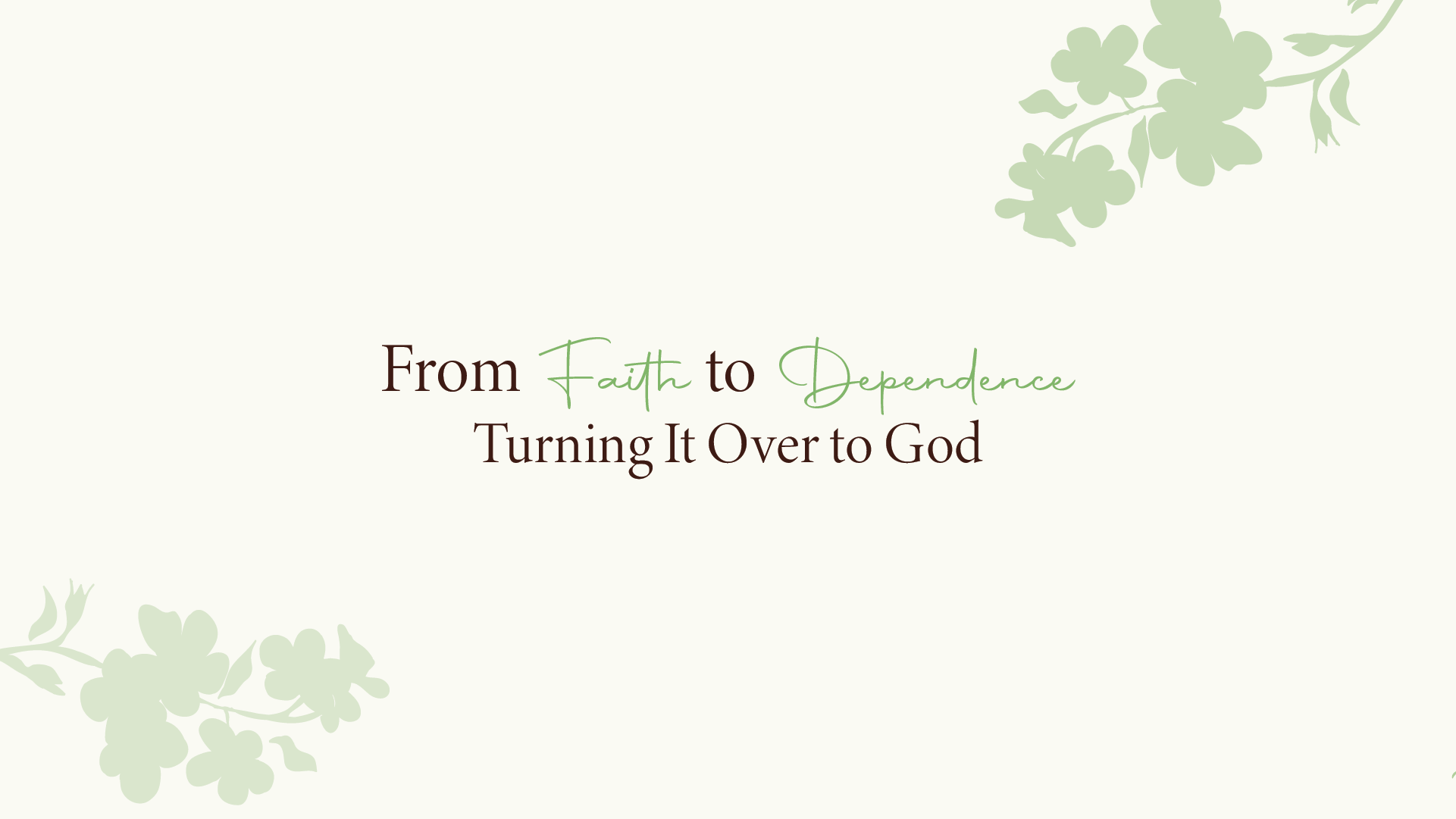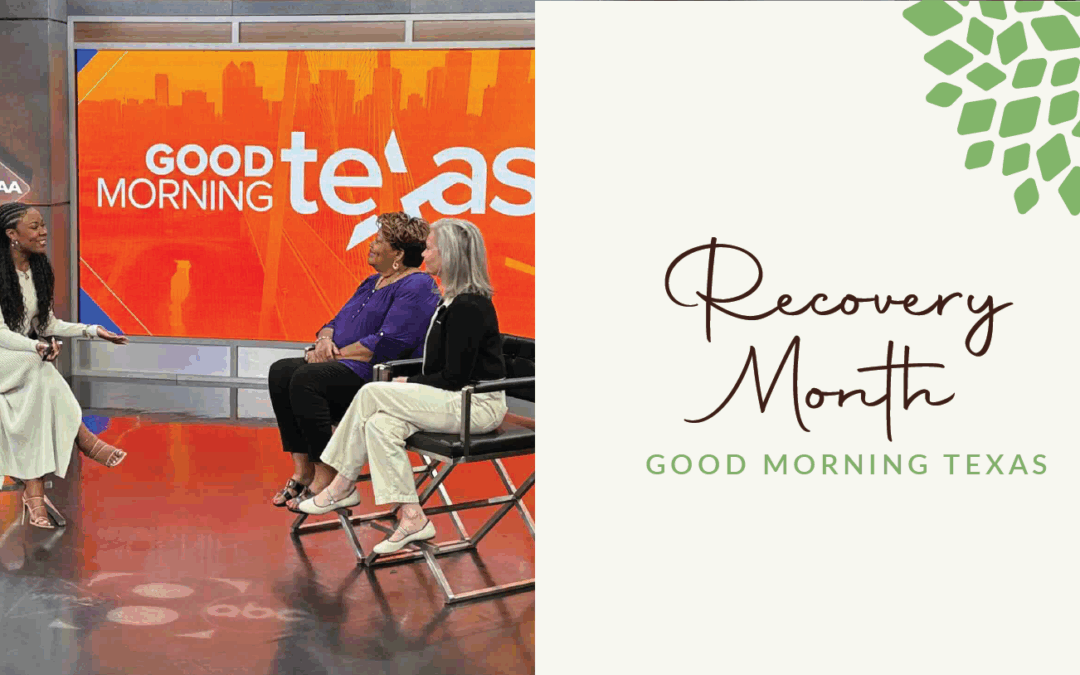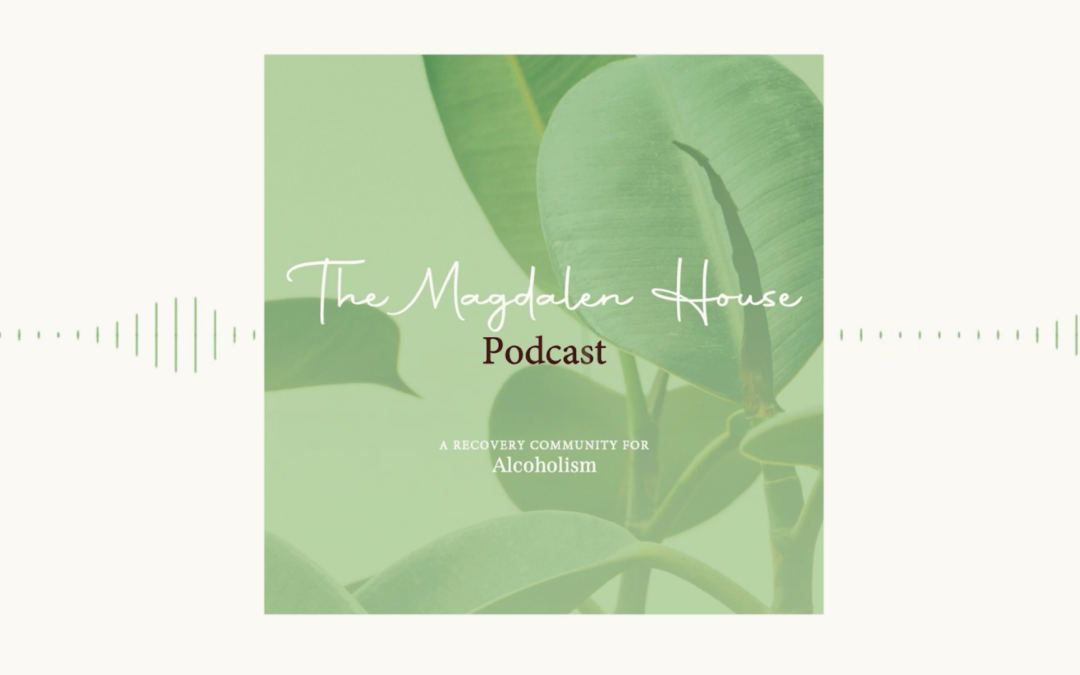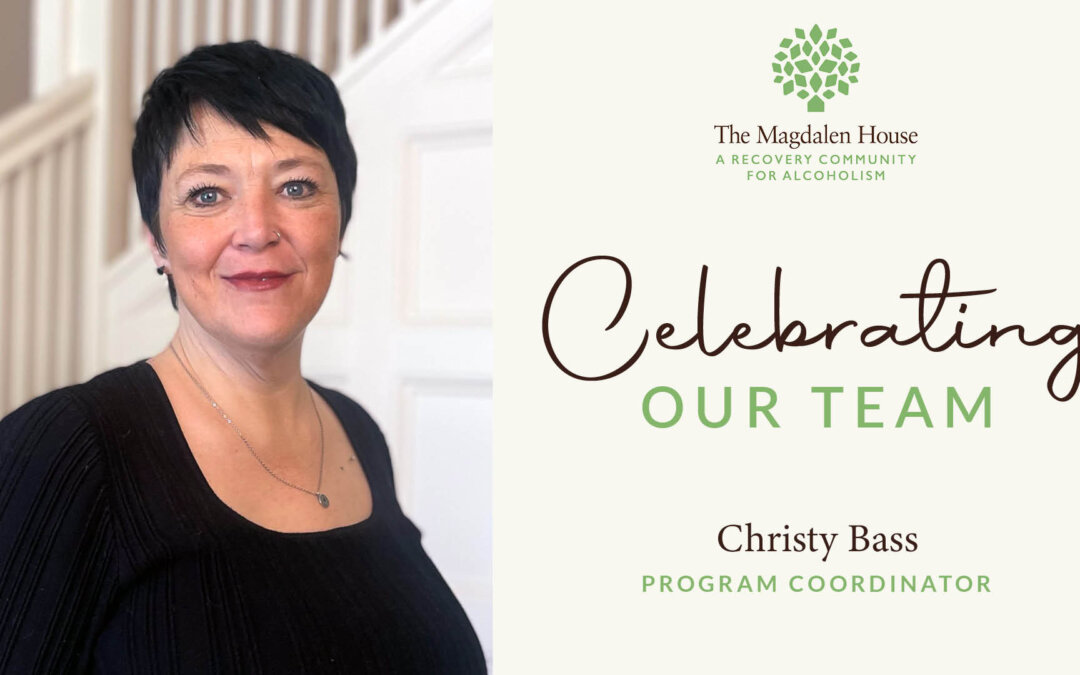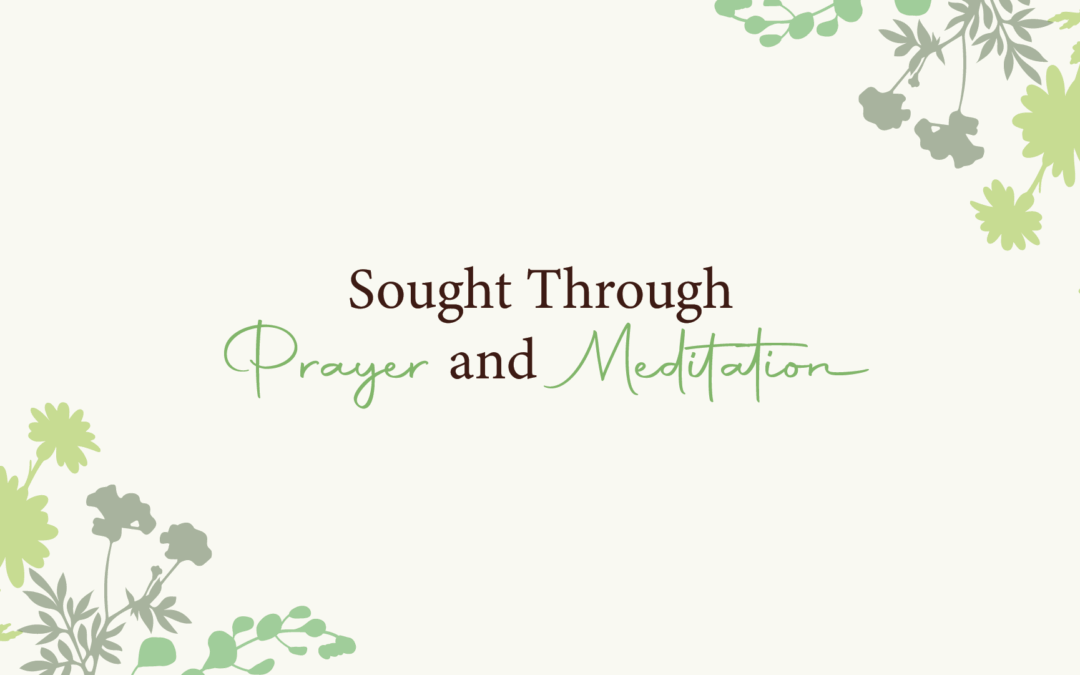From Faith to Dependence: Turning it Over to God
By Teresa Hollingsworth, Chief Program Officer
The twelve steps are about spirituality, not sobriety. They are about growing along spiritual lines, and sobriety is a byproduct of that. All the words of the 12 steps are very specifically chosen. When my sponsor asked me to read We Agnostics in the Big Book, I looked at her and told her I didn’t need to read it—because I had God.
Boy, was I wrong. I didn’t have a relationship with my God, nor did I have any idea how to rely upon that Power. The Second Step doesn’t say, “We came to believe in a Power greater than ourselves,” it says, “We came to believe that a Power greater than ourselves could restore us to sanity.” That’s the beauty—I was invited to begin thinking about what my Higher Power could do for me. The emphasis wasn’t on who or what the Power is, but on what the Power can do for me.
The awareness and understanding that I could not recover alone, and that I needed some kind of help, was the lesson at this point in recovery. I personally could not stop picking up the drink, even though I would have rather died than drink again. I didn’t want to hurt those around me anymore by drinking. But I didn’t have the power to stop. I had no idea how this Power greater than myself was going to help; I just had to believe it was possible.
My sponsor was a woman with three years of recovery. I couldn’t get three hours, and I just desperately wanted what she had. I didn’t know what power she believed in, and I still don’t know today if her Power is the same as mine—and it certainly doesn’t matter. I just had to believe that I wasn’t special, and that if I was willing to seek out this Power, I could have what she had.
When I took Steps One and Two, I learned and accepted that I was powerless over alcohol: powerless over when I would drink, and powerless over how much I would drink—and that a Power greater than myself could restore me to sanity. I had seen it happen in others, but I had to seek out that Power. For so long, I thought that going to treatment centers would make me all better. I had no idea that I had to actively seek this Power—much like how I would frantically search for a drink after waking up from a binge, knowing there was alcohol in the house somewhere. Was I willing to seek this Power with that same intensity?
What if I were to surrender the manageability part? If I could learn to surrender a lifetime of self-will run riot by making the decision to turn it all over to God—or some other Power—that might just save my life. It seemed crazy to me, but I honestly didn’t want to die of alcoholism. I had to stop trying to force everything to happen as if I were in charge of the entire world. Recovery is a spiritual process, and Step Three is when the doors of hope, faith, and trust open—allowing me to take a deep breath and feel some serenity.
The essence of Step Three is turning over my will, getting out of the way, and being restored to sanity. When working on this step, I looked at how acting on self-will means behaving with the exclusion of any consideration for others—focusing only on what I want and ignoring the needs and feelings of those around me.
I didn’t understand Step Three at first, and certainly didn’t understand why my sponsor kept directing me back to pages 60–63 in early recovery. For me, it was the willingness to let this Power work on me—which I didn’t think was possible. Then little things started happening that made me think, “Wow, I wouldn’t normally act this way.”
Step Three became real for me about six months into my recovery, when my sponsor wouldn’t let me cook Thanksgiving dinner for my entire family. She made me ask them to bring something. I couldn’t bring myself to just ask, so I gave each of them specific directions on what to bring. Of course, this was against my sponsor’s wishes. I normally cooked everything and never let anyone contribute to my Thanksgiving “feast”—allowing me to later feel resentful that no one helped when it didn’t turn out perfectly. But that year, even though they ignored my instructions and brought whatever they wanted, there was so much food—and everything was delicious.
That evening, after a perfect day, I realized my usual approach to taking control of Thanksgiving would never have resulted in such joy. I didn’t have to be upset with anyone for not contributing. I saw that my control was the thing that would have ruined the day. I cried and called my sponsor, and finally understood the Step Three prayer and the concept of surrender. That was the moment I realized I was always trying to control the whole show—and that I could be either gracious or demanding. And the best part? I learned my niece makes better banana pudding than I do—and she’s been making it every year since.
If selfishness and self-centeredness are the root of my troubles, am I willing to admit and see how I show up in life? Selfishness takes many forms. It isn’t always loud or obvious. It can show up in subtle, quiet ways—like holding onto resentment, needing to be right, manipulating outcomes, avoiding responsibility, or seeking validation at the expense of others. It can hide behind good intentions, disguise itself in fear, or even look like helping—when deep down, it’s still about me.
The question isn’t just, “Am I selfish?” but rather, “Where in my life is self still driving the bus?” And more importantly—am I willing to surrender that part of me? This kind of honesty requires courage, humility, and a genuine desire to grow. But it’s also the doorway to real freedom.
If sobriety is anything—and it is everything—it is a forgetting, a letting go, an acclimation to a world I never imagined I could adapt to. There are things I have learned:
- How my deepest wounds are where the light gets in.
- How easy it is to shed the things I thought I could never live without.
- How much I can absolutely change while simultaneously remaining what feels like exactly the same.
- How adaptable, full of potential, and unlimited I am.
Mostly, I’ve learned the most unwelcome things—the things I would never ask for—are the things that end up making my bones. Making me. I did not want addiction. I was given addiction. And with it, I was given a beautiful opportunity to find a wonderful, personal relationship with God.
I learned about spirituality. How gorgeous it is to be human. To be messy. To be alive. How joy, love, and happiness can exist so brightly in the darkest places. Long-term sobriety is about constantly seeking—seeking to grow and help others, engaging in self-reflection, remaining teachable, staying humble, and not compromising my morals, regardless of the worldly consequences. I know and accept exactly who I am—flaws and all.


